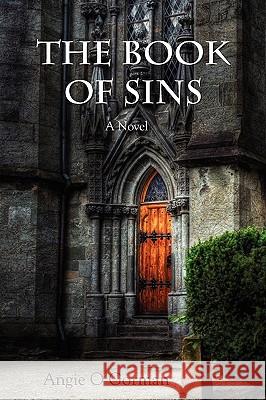The Book of Sins » książka
The Book of Sins
ISBN-13: 9781935514329 / Angielski / Miękka / 2010 / 234 str.
The Book of Sins is a captivating story that portrays the ravages of the capitalist system and its co-optation of the male-dominated Catholic Church. Through the lives of several working women, O'Gorman captures the creative struggle of the poor for their own voice. Together, these women challenge the power structure of interlocking church, business, and legal authorities. O'Gorman skillfully portrays the capitalist system's worship of profit, the failure of the Catholic Church to challenge the collapse of the social contract and the costs of privatization. This is a story of loss and the redemption that comes from solidarity and organizing. A wonderful resource for labor organizers and faith-based communities.
Eileen Purcell, Union Organizer, San Francisco, California
O'Gorman has imagined a future in which capitalism has bought out Christianity, where women have to gather secretly to study The Bible and remember its revolutionary lessons of compassion and non-violent resistance. Like all good dystopian novels, The Book of Sins asks us to consider what will happen if present trends continue, and her fully-realized characters cause us to question our own complicity in those trends.
Susan Neville, author of Sailing the Inland Sea: On Writing, Literature, and Land
O'Gorman's characters make us slow down and think about the not-so-distant future - the year 2034. Her characters remind me of people I know. Their struggles and conflicts seem familiar. She skillfully builds awareness of an authoritarian structure that dominates her characters' lives, giving me a sense of regret that an earlier generation didn't succeed in resisting the fascists of their time.
Kathy Kelly, Co-Coordinator of Voices for Creative Nonviolence, Chicago
The Book of Sins by Angie O'Gorman is continuously clever, playfully fun, and frightfully serious. Lest descriptions of the elite - secular and sacred - provide too much entertainment, the plight of the WardWomen could only be more compelling if the characters were featured in a documentary on abusive treatment. O'Gorman keeps you wondering how truth will influence power.
Mary Elizabeth Bickel, EdD, Catholic Action Network, Missouri
The Book of Sins is a captivating story that portrays the ravages of the capitalist system and its co-optation of the male-dominated Catholic Church. Through the lives of several working women, OGorman captures the creative struggle of the poor for their own voice. Together, these women challenge the power structure of interlocking church, business, and legal authorities. OGorman skillfully portrays the capitalist systems worship of profit, the failure of the Catholic Church to challenge the collapse of the social contract and the costs of privatization. This is a story of loss and the redemption that comes from solidarity and organizing. A wonderful resource for labor organizers and faith-based communities.
Eileen Purcell, Union Organizer, San Francisco, California
OGorman has imagined a future in which capitalism has bought out Christianity, where women have to gather secretly to study The Bible and remember its revolutionary lessons of compassion and non-violent resistance. Like all good dystopian novels, The Book of Sins asks us to consider what will happen if present trends continue, and her fully-realized characters cause us to question our own complicity in those trends.
Susan Neville, author of Sailing the Inland Sea: On Writing, Literature, and Land
OGormans characters make us slow down and think about the not-so-distant future - the year 2034. Her characters remind me of people I know. Their struggles and conflicts seem familiar. She skillfully builds awareness of an authoritarian structure that dominates her characters lives, giving me a sense of regret that an earlier generation didnt succeed in resisting the fascists of their time.
Kathy Kelly, Co-Coordinator of Voices for Creative Nonviolence, Chicago
The Book of Sins by Angie OGorman is continuously clever, playfully fun, and frightfully serious. Lest descriptions of the elite - secular and sacred - provide too much entertainment, the plight of the WardWomen could only be more compelling if the characters were featured in a documentary on abusive treatment. OGorman keeps you wondering how truth will influence power.
Mary Elizabeth Bickel, EdD, Catholic Action Network, Missouri











